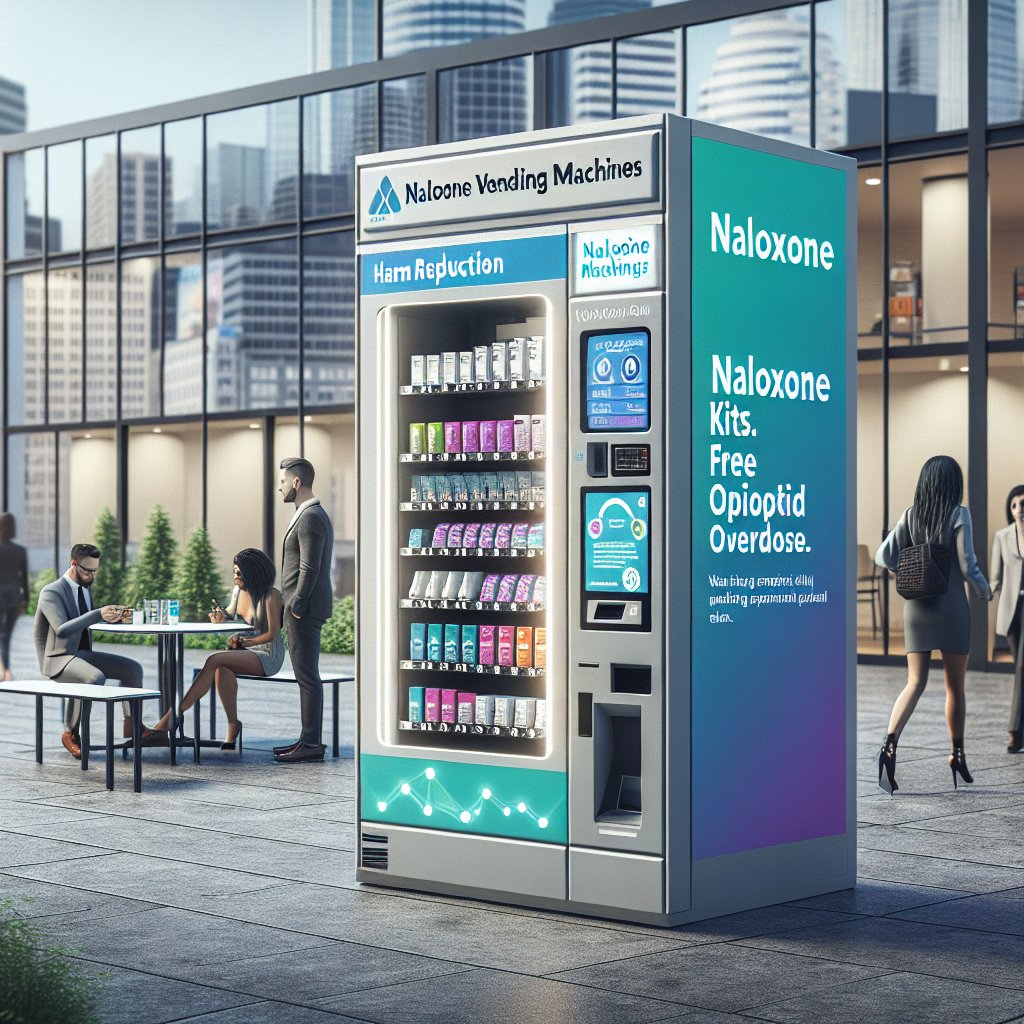Content created by AI
Vending Machines Provide Lifeline: Free Overdose-Reversal Drugs Across the US
The United States is facing an opioid overdose epidemic that claims over 100,000 lives annually, a figure that has doubled since 2015. The emergence of potent synthetics like fentanyl is largely to blame for the staggering loss of life, making the need for effective overdose prevention strategies more urgent than ever. A novel, yet rapidly expanding, approach to this crisis involves the distribution of naloxone via vending machines. In Washington, DC, a notable advocate, Shekita McBroom, praised this approach for its convenience and potential to save lives without stigma or discomfort.
Naloxone, often recognized by its brand name Narcan, reverses the effects of opioid overdoses. Typically administered as a nasal spray, it has become an essential tool in the fight against this epidemic. The vending machines dispense these life-saving sprays for free and provide additional harm reduction items, such as fentanyl testing strips and clean needles, aiming to reduce the transmission of diseases that often accompany drug use.
The movement to make naloxone more accessible is gaining momentum, with vending machines appearing in several US cities in 2023. Washington, DC, for instance, has launched seven such machines managed by local health organizations. In just two months, the Family and Medical Counseling Service Inc. reported that their four machines had dispensed over 200 packages of Narcan.
Cities like Chicago and New York have also launched pilot programs to test the effectiveness of naloxone vending machines. The initiative spread to state levels in West Virginia, Wisconsin, Vermont, Missouri, Kansas, and Connecticut. Tribal governments including the Pala Band of Mission Indians and the Tulalip reservation have also joined in, setting an example for nationwide adoption.
Despite this progress, public opinion remains a significant barrier. Some politicians and policymakers perceive that making naloxone so easily available may inadvertently promote drug usage. However, this "moral hazard" argument is countered by the stark reality of overdose mortality rates and expert endorsements of harm reduction as an essential strategy in managing the crisis. Activists argue that harm reduction tactics must complement the traditional "prevention/interdiction" model, which alone fails to address the immediacy and severity of the crisis.
Efforts to destigmatize naloxone have borne fruit, as evidenced by Philadelphia-based research showing widespread acceptance of its non-prescription availability. Nonetheless, practical implementation considerations must not be sidelined. Experts advocate for low-tech, high-access models of vending machines, free from unnecessary regulations, such as refrigeration, which only inflate costs and limit reach.
In light of these developments, the FDA's March approval of the first non-prescription naloxone nasal spray marks a further crucial step in harm reduction. This decision opens the door for a variety of retailers to provide naloxone over-the-counter, enhancing its accessibility.
Amidst personal tragedies like McBroom's, whose 17-year-old daughter succumbed to a fentanyl overdose, the importance of these vending machines transcends statistics and policies – they symbolize a beacon of hope and potential lives saved within communities severely impacted by the opioid crisis.










